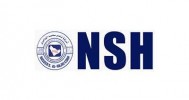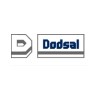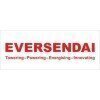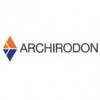Filter interviews by
SK E&C Interview Questions and Answers
16 Interview questions
Types arrays are arrays that contain elements of a specific data type.
Types arrays can be used in programming languages to store data of a specific type, such as integers or strings.
Examples of types arrays include int arrays, char arrays, and string arrays.
Types arrays can be declared with a specific size or left to dynamically allocate memory.
Accessing elements in a types array is done using an index, starting a...
Offset refers to the placement of objects or elements in a design that creates visual interest and balance.
Offsetting elements can create a sense of movement and flow in a design
It can also be used to create contrast and emphasize certain elements
Examples of offsetting include using asymmetrical balance, overlapping elements, and creating negative space
Offsetting can be used in various design fields, such as graph...
I would need more information about the references to draw the plan accurately.
Can you provide me with the references you mentioned?
What is the scale of the plan?
Are there any specific requirements or preferences for the design?
Do you have a deadline for the completion of the plan?
FFJB and analogue JB are two different types of junction boxes used in electrical systems.
FFJB stands for Fiber-Filled Junction Box and is made of a composite material that is resistant to corrosion and moisture.
Analog JB, on the other hand, is a traditional junction box made of metal or plastic.
FFJB is more expensive than analog JB but offers better protection against environmental factors.
Analog JB is more commo...
Open loop and closed loop are control systems used in engineering and automation.
Open loop systems have no feedback mechanism and rely solely on input commands.
Closed loop systems have a feedback mechanism that adjusts the output based on the input and desired outcome.
Open loop systems are simpler and less expensive, but less accurate and adaptable.
Closed loop systems are more complex and expensive, but more accur...
SAT stands for Site Acceptance Test, which is a process to ensure that a system or equipment meets the specified requirements.
SAT is performed at the installation site of the equipment or system.
It is conducted to verify that the equipment or system is installed correctly and operates as intended.
The test is usually performed by the customer or end-user, with the assistance of the supplier or manufacturer.
SAT may ...
Critical lifting refers to the lifting of heavy loads that pose a significant risk to personnel and equipment.
Critical lifting involves loads that are heavy, awkwardly shaped, or require specialized equipment or techniques to lift safely.
Examples of critical lifting include lifting large machinery, heavy equipment, or oversized loads.
Proper planning, equipment selection, and training are essential to ensure safe a...
There are five main types of fire extinguishers: water, foam, powder, carbon dioxide, and wet chemical.
Water fire extinguishers are suitable for Class A fires involving solid materials like wood or paper.
Foam fire extinguishers are effective for Class A and B fires, which involve flammable liquids like gasoline or oil.
Powder fire extinguishers can be used for Class A, B, and C fires, which involve flammable gases ...
The hazards inside a confined space can include lack of oxygen, toxic gases, flammable materials, and physical hazards.
Lack of oxygen: Confined spaces may have limited ventilation, leading to a decrease in oxygen levels.
Toxic gases: Certain confined spaces can contain hazardous gases such as carbon monoxide or hydrogen sulfide.
Flammable materials: Presence of flammable substances like fuels or chemicals can increa...
The safe distance of excavations from a truck depends on various factors such as the size of the truck, the type of excavation, and the specific safety regulations in place.
The safe distance should be determined based on the size and weight of the truck. Larger trucks may require a greater distance.
Consider the type of excavation being conducted. For example, if the excavation involves heavy machinery or equipment...
SK E&C Interview Experiences
10 interviews found
Python program python
(2 Questions)
- Q1. Pipe fabrication
- Q2. Site pipe erection

Easy questions. Take preperation for better performance
(3 Questions)
- Q1. Concept on structure and foundations. Basic question were asked
- Q2. How did you design a pump foundation?
- Ans.
Designing a pump foundation involves considering factors like soil conditions, load requirements, and structural stability.
Evaluate soil conditions to determine bearing capacity
Calculate loads from the pump and surrounding equipment
Design foundation to distribute loads evenly and prevent settlement
Consider factors like seismic activity and environmental conditions
Use appropriate materials and construction techniques fo...
- Q3. Steps to design a pipe racks
- Ans.
Designing pipe racks involves several steps to ensure structural integrity and functionality.
Determine the layout and location of the pipe rack based on piping requirements and site constraints
Calculate the loads and stresses on the pipe rack to ensure it can support the weight of the pipes and withstand external forces
Select appropriate materials and structural components for the pipe rack based on the design requirem...
Interview Preparation Tips
I applied via Walk-in and was interviewed in Aug 2023. There were 2 interview rounds.
Common aptitute such as railway problem
Enviroment sustainablity
I appeared for an interview in Dec 2021.
(2 Questions)
- Q1. Tell me about offset and what is the use
- Ans.
Offset refers to the placement of objects or elements in a design that creates visual interest and balance.
Offsetting elements can create a sense of movement and flow in a design
It can also be used to create contrast and emphasize certain elements
Examples of offsetting include using asymmetrical balance, overlapping elements, and creating negative space
Offsetting can be used in various design fields, such as graphic de...
- Q2. Explain Types arrays
- Ans.
Types arrays are arrays that contain elements of a specific data type.
Types arrays can be used in programming languages to store data of a specific type, such as integers or strings.
Examples of types arrays include int arrays, char arrays, and string arrays.
Types arrays can be declared with a specific size or left to dynamically allocate memory.
Accessing elements in a types array is done using an index, starting at 0.
T...
(1 Question)
- Q1. Draw the plan with the given references
- Ans.
I would need more information about the references to draw the plan accurately.
Can you provide me with the references you mentioned?
What is the scale of the plan?
Are there any specific requirements or preferences for the design?
Do you have a deadline for the completion of the plan?
Interview Preparation Tips
Sketchup vray and prepare engineering subjects
Skills evaluated in this interview
I applied via Walk-in and was interviewed in Aug 2021. There were 4 interview rounds.
Interview Questionnaire
11 Questions
- Q1. As a safety engineer what are responsibilities
- Ans.
A safety engineer is responsible for ensuring the safety of people, equipment, and processes in various industries.
Developing and implementing safety policies and procedures
Conducting risk assessments and identifying potential hazards
Designing and implementing safety systems and protocols
Inspecting and evaluating workplace environments and equipment
Investigating accidents and incidents to determine causes and prevent f...
- Q2. What is ERP, what are the resources required
- Ans.
ERP stands for Enterprise Resource Planning. It is a software system that integrates various business processes and functions.
ERP is used to streamline and automate business operations.
It helps in managing resources such as finances, human resources, inventory, and production.
ERP systems typically include modules for different departments like finance, HR, sales, and manufacturing.
Resources required for ERP implementat...
- Q3. What is sill, how will place a ladder
- Ans.
Sill is the bottom horizontal part of a window frame. Place the ladder on a stable surface and lean it against the wall near the window.
Sill is the bottom part of a window frame
Ladder should be placed on a stable surface
Lean the ladder against the wall near the window
Ensure the ladder is secure before climbing
- Q4. What is the critical lifting Describe
- Ans.
Critical lifting refers to the lifting of heavy loads that pose a significant risk to personnel and equipment.
Critical lifting involves loads that are heavy, awkwardly shaped, or require specialized equipment or techniques to lift safely.
Examples of critical lifting include lifting large machinery, heavy equipment, or oversized loads.
Proper planning, equipment selection, and training are essential to ensure safe and su...
- Q5. What is risk assessment
- Ans.
Risk assessment is the process of identifying, analyzing, and evaluating potential risks to determine their likelihood and impact on safety.
Risk assessment involves identifying hazards and potential sources of harm.
It includes analyzing the likelihood and severity of potential risks.
Evaluating the risks helps prioritize them and determine appropriate control measures.
Examples of risk assessment methods include HAZOP, F...
- Q6. Explain culvert construction safety measure
- Ans.
Culvert construction safety measures ensure worker protection and prevent accidents.
Provide proper training to workers on safety protocols and equipment usage.
Implement proper signage and barricades to alert workers and drivers of construction zones.
Ensure proper ventilation and lighting inside the culvert to prevent accidents.
Use personal protective equipment (PPE) such as hard hats, safety glasses, and high-visibilit...
- Q7. Confined spaces safety requirements
- Ans.
Confined spaces require specific safety measures to prevent accidents and injuries.
Identify and assess all confined spaces in the workplace
Implement proper ventilation and air quality testing
Provide adequate lighting and communication equipment
Train employees on confined space entry procedures and emergency response
Use proper personal protective equipment (PPE)
Have a rescue plan in place
Regularly inspect and maintain c...
- Q8. What are the hazards inside the confined space
- Ans.
The hazards inside a confined space can include lack of oxygen, toxic gases, flammable materials, and physical hazards.
Lack of oxygen: Confined spaces may have limited ventilation, leading to a decrease in oxygen levels.
Toxic gases: Certain confined spaces can contain hazardous gases such as carbon monoxide or hydrogen sulfide.
Flammable materials: Presence of flammable substances like fuels or chemicals can increase th...
- Q9. How many types of fire extinguisher
- Ans.
There are five main types of fire extinguishers: water, foam, powder, carbon dioxide, and wet chemical.
Water fire extinguishers are suitable for Class A fires involving solid materials like wood or paper.
Foam fire extinguishers are effective for Class A and B fires, which involve flammable liquids like gasoline or oil.
Powder fire extinguishers can be used for Class A, B, and C fires, which involve flammable gases like ...
- Q10. How many types of fires
- Ans.
There are five types of fires: Class A, Class B, Class C, Class D, and Class K.
Class A fires involve ordinary combustible materials like wood, paper, and cloth.
Class B fires involve flammable liquids like gasoline, oil, and grease.
Class C fires involve energized electrical equipment.
Class D fires involve combustible metals like magnesium and titanium.
Class K fires involve cooking oils and fats.
- Q11. What is the safe distance of excavations from a a truck
- Ans.
The safe distance of excavations from a truck depends on various factors such as the size of the truck, the type of excavation, and the specific safety regulations in place.
The safe distance should be determined based on the size and weight of the truck. Larger trucks may require a greater distance.
Consider the type of excavation being conducted. For example, if the excavation involves heavy machinery or equipment, a l...
Interview Preparation Tips
Skills evaluated in this interview
Qa Qc Welding and Piping Inspector Interview Questions & Answers
posted on 2 Jun 2022

(1 Question)
- Q1. Regarding Hydro-test, NDT techniques, welding inspection
Interview Preparation Tips
I applied via Naukri.com and was interviewed in Sep 2021. There was 1 interview round.
(3 Questions)
- Q1. Where do you see yourself in 5 years?
- Q2. What are your strengths and weaknesses?
- Q3. Tell me about yourself.
Interview Preparation Tips
Interview Questionnaire
1 Question
- Q1. Previous experience of working with Korean companies wl be enough to comfortably clear the interview with Answers should be given in slow mode(slow speed).
I applied via Recruitment Consultant and was interviewed before Oct 2020. There was 1 interview round.
Interview Questionnaire
4 Questions
- Q1. What is open loop and closed loop
- Ans.
Open loop and closed loop are control systems used in engineering and automation.
Open loop systems have no feedback mechanism and rely solely on input commands.
Closed loop systems have a feedback mechanism that adjusts the output based on the input and desired outcome.
Open loop systems are simpler and less expensive, but less accurate and adaptable.
Closed loop systems are more complex and expensive, but more accurate a...
- Q2. What is SAT?
- Ans.
SAT stands for Site Acceptance Test, which is a process to ensure that a system or equipment meets the specified requirements.
SAT is performed at the installation site of the equipment or system.
It is conducted to verify that the equipment or system is installed correctly and operates as intended.
The test is usually performed by the customer or end-user, with the assistance of the supplier or manufacturer.
SAT may inclu...
- Q3. Difference between FFJB and analogue JB
- Ans.
FFJB and analogue JB are two different types of junction boxes used in electrical systems.
FFJB stands for Fiber-Filled Junction Box and is made of a composite material that is resistant to corrosion and moisture.
Analog JB, on the other hand, is a traditional junction box made of metal or plastic.
FFJB is more expensive than analog JB but offers better protection against environmental factors.
Analog JB is more commonly u...
- Q4. Loop folder containing documents
Interview Preparation Tips
Top trending discussions






SK E&C Interview FAQs
Tell us how to improve this page.
SK E&C Interviews By Designations
- SK E&C Qa Qc Welding and Piping Inspector Interview Questions
- SK E&C Interior Designer Interview Questions
- SK E&C Quality Inspector Interview Questions
- SK E&C Assistant Parts Manager Interview Questions
- SK E&C QC Inspector Interview Questions
- SK E&C Civil Engineer Interview Questions
- SK E&C Executive Interview Questions
- SK E&C Piping Supervisor Interview Questions
- Show more
Interview Questions for Popular Designations
Overall Interview Experience Rating
based on 8 interview experiences
Difficulty level
Duration
Interview Questions from Similar Companies
SK E&C Reviews and Ratings
based on 241 reviews
Rating in categories
|
Tunnel Engineer
18
salaries
| ₹12.4 L/yr - ₹24 L/yr |
|
Civil Engineer
17
salaries
| ₹8 L/yr - ₹24 L/yr |
|
Mechanical Engineer
14
salaries
| ₹4.6 L/yr - ₹12.1 L/yr |
|
Piping Supervisor
7
salaries
| ₹15 L/yr - ₹30 L/yr |
|
Electrical Supervisor
7
salaries
| ₹12 L/yr - ₹21 L/yr |

Nasser S. Al Hajri Corporation

Saudi Binladin Group

Dodsal Engineering & Construction

Leighton Contractors
- Home >
- Interviews >
- SK E&C Interview Questions















